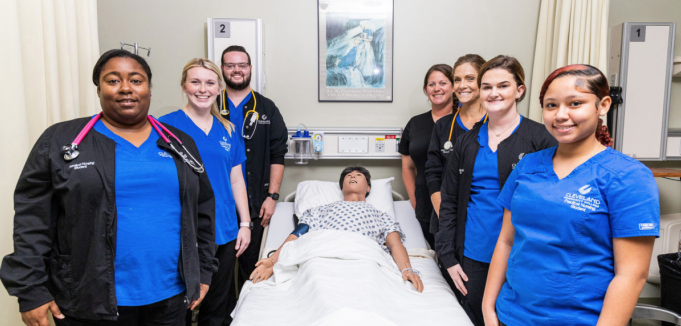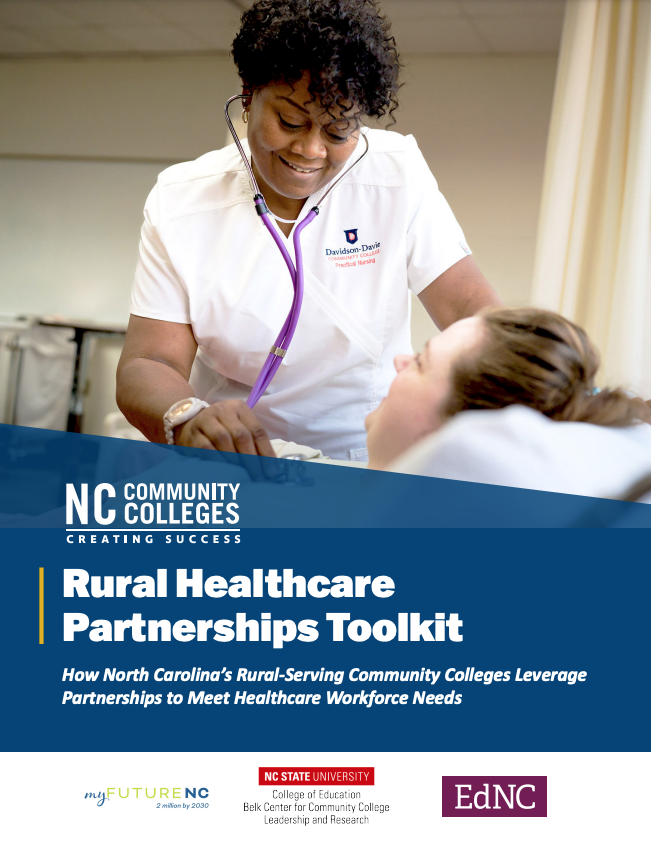North Carolina Community College System Launches Toolkit to Bridge Rural Healthcare Gaps

Rural communities across North Carolina face a critical shortage of healthcare professionals, creating an urgent need for innovative solutions. In response, the North Carolina Community College System has introduced the Rural Healthcare Partnerships Toolkit, a comprehensive resource designed to strengthen collaboration among healthcare organizations, educational institutions, and workforce development partners.
The toolkit highlights proven partnership models from across rural North Carolina that are successfully addressing local and regional healthcare workforce demands. This initiative stems from the Rural Postsecondary Practices Partnership (RP3)—a collaborative effort involving the North Carolina Community College System, the Belk Center for Community College Leadership and Research, EducationNC, and myFutureNC. RP3 focuses on identifying and sharing strategies to empower rural-serving community colleges and foster workforce growth.
“Resourcefulness and relationships define rural communities and their colleges,” said Dr. Zach Barricklow, Associate Vice President for Strategy and Rural Innovation at the System and Liaison for Rural Engagement and Research at the Belk Center. “This toolkit showcases how North Carolina’s community colleges work collaboratively with local and regional partners to equip students with the skills, support, and connections needed to succeed in healthcare careers. It also reflects the unwavering commitment of these colleges to healthcare employers seeking qualified professionals.”
 The toolkit features strategies that rural-serving colleges are using to build and expand programs aimed at addressing healthcare labor shortages. These include innovative cross-sector collaborations that unite employers, K-12 schools, universities, and community-based organizations. While these partnerships are impactful across various contexts, they are especially vital in rural areas where pooling resources is essential to maximizing opportunities.
The toolkit features strategies that rural-serving colleges are using to build and expand programs aimed at addressing healthcare labor shortages. These include innovative cross-sector collaborations that unite employers, K-12 schools, universities, and community-based organizations. While these partnerships are impactful across various contexts, they are especially vital in rural areas where pooling resources is essential to maximizing opportunities.
“We urge education and healthcare leaders to explore this toolkit,” Barricklow said. “Use it as a guide to replicate successful models, adapt them to your community, and drive meaningful change. By learning from these examples, stakeholders can avoid reinventing the wheel and instead refine strategies that work.”
For additional details about RP3 or the Rural Healthcare Partnerships Toolkit—or to share ideas, feedback, or examples—email RP3@nccommunitycolleges.edu.
About RP3
The Rural Postsecondary Practices Partnership (RP3) synthesizes insights from nearly 50 rural-serving institutions across North Carolina—the largest rural college network in the U.S. By combining data, targeted research, and first-hand perspectives, RP3 curates effective practices to support workforce development and higher education.
Partner Organizations:
- North Carolina Community College System: Comprised of 58 institutions across the state, the System provides accessible, high-quality education that minimizes barriers and develops a workforce ready to meet global demands.
- Belk Center for Community College Leadership and Research: Housed at NC State University, the Belk Center empowers North Carolina’s community colleges by equipping leaders and driving social and economic mobility.
- EducationNC (EdNC): A nonprofit news organization delivering essential stories and diverse perspectives on North Carolina’s education landscape, including its community colleges. Read EdNC’s statement on journalistic independence.
- myFutureNC: A nonprofit committed to increasing the attainment of industry-valued credentials and degrees, working toward a goal of 2 million credentialed North Carolinians by 2030.

